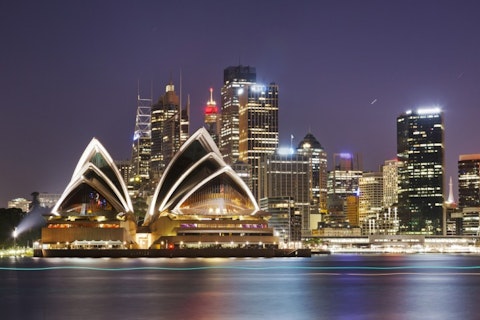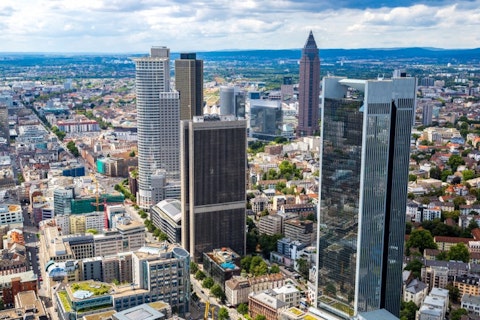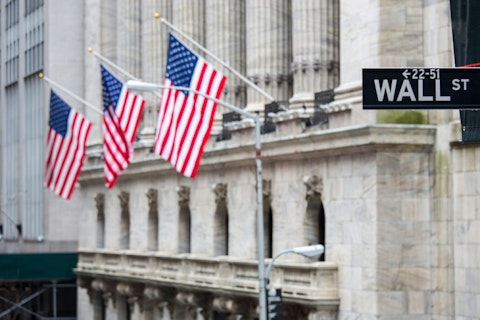While there are over 60 stock exchanges around the world, the 16 largest stock exchanges in the world in 2017 alone have a market capitalization of over $1.0 trillion, being sometimes referred to as the “$1 Trillion Club.” These 16 exchanges account for around 85% of the global market capitalization, which is worth over $76 trillion.
While most of us associate stock exchanges with charts, graphs, indexes, and other data that is available online and can be used within seconds via a device that has a stable internet connection, the history of stock exchanges can be traced as far back as ancient Rome, where some historians suggest there were companies whose employees held shares that fluctuated in price over time based on the organization’s performance. One of the oldest official stock exchanges is believed to be the Frankfurt Stock Exchange, which was established in 1585, but the first corporate stock was traded in the early 1600s by the Dutch East India Company.
Fast forward to today and there are hundreds of thousands of companies that are traded on the global stock markets, with many companies choosing to list their shares and sell them to the general public in order to raise capital. Big and small investors use stock exchanges to generate income for themselves to use for retirement or for their clients. Because of the high exposure of businesses to the stock market and the involvement of many people who in one way or another hold shares of different companies, the stock market is used as one of the determinants of the health of a country’s economy and investors’ sentiment towards that economy.

Copyright: rawpixel / 123RF Stock Photo
The correlation between the stock market and the economy is deeper than it might seem at first. Since many companies rely on stock markets to raise capital, if the share prices drop, firms struggle to raise capital and to grow, which in turn affects employment and economic growth. Moreover, in many countries in the developed world, large shares of the population have private pension plans with various funds, which invest large shares of their assets in the stock market. Therefore, any large movement and long-term trends affect retired people, who rely on pensions for the income that they need for housing, food and other items.
Over the last decade and a half, the global market capitalization has more than doubled. However, the global crisis and the following Eurozone sovereign debt crisis put a strain on the growth of the Western stock markets, which even though they did see some growth, was much lower compared to the rest of the world. Most growth in the total market capitalization came from the Asian emerging markets. The leader in stock market growth is China, which between 2003 and 2016, saw the total capitalization of its stock markets surge by a staggering 1,480%. However, in absolute terms, the U.S is the leader, due to the fact that it’s the home of the two largest stock exchanges: the New York Stock Exchange, owned by Intercontinental Exchange Inc (NYSE:ICE), and the NASDAQ, owned by Nasdaq Inc (NASDAQ:NDAQ). The total market capitalization in the U.S surged to $65.6 trillion from $28.1 trillion during the 2003-2013 period, which represents growth of 133%.
With this in mind, let’s take a look at the 16 largest stock exchanges in the world in 2017. The data was taken from the World Federation of Exchanges, with the exception of the London Stock Exchange, which left the WFE in 2013. You can also compare how the numbers have changed since 2014, when we compiled a list of the 20 largest stock exchanges in the world.
16. NASDAQ Nordic Exchanges
Market Capitalization: $1.25 Trillion
The first of the 16 largest stock exchanges in the world in 2017 is the NASDAQ Nordic Exchanges, which are operated by NASDAQ Nordic, a subsidiary of Nasdaq Inc (NASDAQ:NDAQ). The company operates a number of markets, including the Copenhagen Stock Exchange, Stockholm Stock Exchange, and Helsinki Stock Exchange. The NASDAQ Nordic Exchanges have 938 listed stocks as of the end of 2016.

bluebay/Shutterstock.com
15. Korea Exchange
Market Capitalization: $1.25 Trillion
The Korea Exchange is the only securities exchange in South Korea and is headquartered in Busan, with offices for cash markets and market oversight in Seoul. During 2016, the Korea Exchange registered a growth in total market capitalization of 4.5% and it has 2,059 listed companies as of the end of the last year, up from 1,961 companies at the end of 2015.

photofriday/Shutterstock.com
14. Australian Securities Exchange
Market Capitalization: $1.27 Trillion
The Australian Securities Exchange is located in Sydney, which is why it is sometimes referred to as the Sydney Stock Exchange. There are 2,095 companies listed on the Australian Securities Exchange, out of which 126 are foreign companies. In terms of the number of foreign listed companies, the ASX is the second-largest in the Asia-Pacific region, behind the Singapore Exchange. The ASX’s total capitalization advanced by 8.1% during 2016.

Taras Vyshnya/Shutterstock.com
13. SIX Swiss Exchange
Market Capitalization: $1.40 Trillion
The Zurich-based SIX Swiss Exchange is Switzerland’s main stock exchange, with the other located in Bern, and ranks as the 13th largest of the 16 largest stock exchanges in the world in 2017. The SIX Swiss Exchange was the first in the world to launch a fully automated system for trading, clearing and settlement in 1995. The exchange is controlled by 55 banks, each of whom have equal voting rights. The SIX Swiss Exchange’s total market capitalization declined by 5.1% last year and it has 264 listed companies.

RossHelen/Shutterstock.com
12. National Stock Exchange of India
Market Capitalization: $1.54 Trillion
The National Stock Exchange of India is the principal stock exchange in India and was established in 1992 in Mumbai. The NSE’s main index is the NIFTY 50, which includes 50 stocks of 50 companies and one DVR (differential voting rights shares) for Tata Motors (which also has regular shares). The Nifty 50 is used as a barometer of the Indian Capital Markets due to its inclusion of companies from all 13 sectors of the Indian economy. There are currently around 1,840 companies listed on the NSE. The total market capitalization of the NSE grew by 6.2% during the last year.

everything possible/Shutterstock.com
11. Bombay Stock Exchange
Market Capitalization: $1.57 Trillion
The Bombay Stock Exchange ranks 11th in our list of largest stock exchanges in the world in 2017. It has significantly more listed companies compared to the National Stock Exchange of India: 5,821. It is also located in Mumbay and claims to be the fastest stock exchange in the world, with a median trade speed of 6 microseconds. During 2016, the Bombay Stock Exchange’s total market capitalization increased by 5.8%.

Phongphan/Shutterstock.com
10. Deutsche Börse
Market Capitalization: $1.72 Trillion
The Deutsche Börse AG operates the Frankfurt Stock Exchange, which hosts 592 companies as of the end of 2016, down from 619 companies a year earlier. The Frankfurt Stock Exchange is the largest of the seven regional securities exchanges in Germany and accounts for 90% of the turnover generated in the country. The Frankfurt Stock Exchange’s history can be traced back to trade fairs in 11th century Frankfurt and by the 16th century, the exchange was established to set up fixed currency exchange rates. Due to this exchange, Frankfurt is considered the birthplace of stock exchanges. During 2016, the total market capitalization of the Frankfurt Stock Exchange registered a growth of 3.8%.

S-F/Shutterstock.com
9. Toronto Stock Exchange
Market Capitalization: $1.99 Trillion
During 2016, the Toronto Stock Exchange saw one of the largest capitalization growths among stock exchanges based in the Americas and was the growth leader among the 16 largest stock exchanges in the world in 2017. The total market capitalization of the Toronto Stock Exchange surged by 21.4% during the last year, although the number of listed companies declined to 3,419 from 3,559. The Toronto Stock Exchange is owned and operated as a subsidiary of the TMX Group.

RuthChoi/Shutterstock.com
8. Hong Kong Stock Exchange
Market Capitalization: $3.19 Trillion
The total market capitalization of the Hong Kong Stock Exchange inched up by 0.3% during 2016, but the number of listed companies advanced by 107 to 1,973. The Hong Kong Stock Exchange is owned and operated by the Hong Kong Exchanges and Clearing and it is one of the few exchanges that still have a physical trading floor, although it accounts for less than 1% of the trading volume.

Ronnie Chua/Shutterstock.com
7. Shenzen Stock Exchange
Market Capitalization: $3.21 Trillion
The Shenzen Stock Exchange that’s up next in our list of largest stock exchanges in the world in 2017 has 1,870 listed companies, fewer than the Hong Kong Stock Exchange, but more than the largest Chinese stock exchange, the Shanghai Stock Exchange. During 2016, its total market capitalization declined by 5.5%, although a year earlier it surged by over 75%.

lassedesignen/Shutterstock.com
6. London Stock Exchange
Market Capitalization: $3.41 Trillion
We are continuing our list of largest stock exchanges in the world in 2017 with the London Stock Exchange is owned and operated by the London Stock Exchange Group plc, which also owns Italy’s only stock exchange, Borsa Italiana. Over the last few decades, the London Stock Exchange was involved in a number of attempts to merge with the Toronto Stock Exchange, the NASDAQ, and the Deutsche Börse, but all deals fell through. There are 991 UK companies and 267 international companies currently listed on the London Stock Exchange.

Mapics/Shutterstock.com
5. Euronext
Market Capitalization: $3.46 Trillion
Euronext is a stock exchange based in Amsterdam, Brussels, London, Lisbon, and Paris. It is the largest of the 16 largest stock exchanges in the world in 2017 to be based in Europe in terms of total market capitalization, and currently hosts 1,051 listed companies, which include 936 domestic and 115 foreign companies. During 2016, Euronext’s total market capitalization went up by 8.6%. In 2007, Euronext merged with NYSE Group to create NYSE Euronext and in 2013, Intercontinental Exchange Inc (NYSE:ICE) acquired the combined company. However, in 2014, Euronext separated and went public as an independent company.

Vintage Tone/Shutterstock.com
4. Shanghai Stock Exchange
Market Capitalization: $4.10 Trillion
The Shanghai Stock Exchange is the largest stock exchange in China in terms of total market capitalization and is the second-largest in Asia. The Shanghai Stock Exchange is not completely open to foreign investors and has two types of stocks, “A” and “B”, with only “B” shares available to foreign investors. There are 1,182 companies listed on the Shanghai Stock Exchange and its total market capitalization declined by 3.6% last year, after having appreciated by over 15% in 2015.

Songquan Deng / Shutterstock.com
3. Tokyo Stock Exchange
Market Capitalization: $4.96 Trillion
The total market capitalization of the Tokyo Stock Exchange, the number 3 in our list of largest stock exchanges in the world in 2017 inched down by 1.7% last year and it currently has 3,541 listed companies, the second-largest number after the Bombay Stock Exchange. The Tokyo Stock Exchange is owned and operated by the Japan Exchange Group, which was formed in 2013 after the Tokyo Stock Exchange merged with the Osaka Securities Exchange.

stock_shot / Shutterstock.com
2. NASDAQ
Market Capitalization: $7.78 Trillion
The NASDAQ Stock Market ranks second in our list of largest stock exchanges in the world in 2017. It is owned by Nasdaq Inc (NASDAQ:NDAQ). Its name represents an acronym of “National Association of Securities Dealers Automated Quotations” and it was founded in 1971 by the National Association of Securities Dealers (NASD). At its foundation, the NASDAQ was the first electronic stock market and was the first stock market in the U.S to offer online trading. The possibility of online trading attracted many large tech companies, such as Microsoft Corporation (NASDAQ:MSFT) and Apple Inc (NASDAQ:AAPL), which is why it has become common for tech companies to choose to list their shares on the NASDAQ. There are currently 2,897 companies listed on the NASDAQ and its total market capitalization grew by 6.8% during 2016.

Rawpixel.com/Shutterstock.com
1. New York Stock Exchange
Market Capitalization: $19.57 Trillion
The New York Stock Exchange, owned by Intercontinental Exchange Inc (NYSE:ICE), was the only other stock exchange with a market capitalization exceeding $1.0 trillion that grew by double-digits during 2016. Its growth amounted to 10%, but in absolute terms, the market capitalization increased by $1.79 trillion. During 2016, the New York Stock Exchange registered 1.85 million trades, during which some 356.13 billion shares changed hands.

vichie81/Shutterstock.com
These are the 16 largest stock exchanges in the world in 2017. Even though there are many other exchanges all over the world, these exchanges account for the largest companies and the bulk of trading that is going on every day.
Disclosure: None





